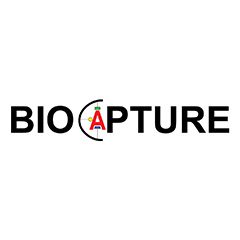Professor Börje Sellergren at the Department of Biomedical Science is set to coordinate a European interdisciplinary research project that has been allocated 30 million kronor (ca 3 million euro) by Innovative Training Networks, an EU Marie Sklodwoska-Curie programme.
By creating new molecular tools, researchers can develop novel methods to facilitate early detection and increase our understanding of cancer. “This means a great deal to us. Coordinating the Bio Capture project will be highly stimulating. All the participants are extremely eager to get started and we can foresee very exciting extensions of this work. The project has a solid scientific foundation and a group of very interesting partners and together we hope to make a difference,” said Börje Sellergren.
The research project, which is due to commence in November and will run for four years, will include researchers from nine centres of education in Sweden, Denmark, Norway, Germany, Italy and the United Kingdom. There are also a number of non-academic partners linked to the project, which would enable commercialisation of the products that will be created.
Artificial antibodies
“We will produce artificial antibodies, which could be described as plastic copies of the biological receptors that the body uses to recognise and neutralise xenobiotic substances. Antibodies are now being used on a broad scale in cancer diagnostics and treatment. Our plastic copies are stable, cost-effective and simple to produce; advantages that we believe can make them of interest as alternatives to antibodies,” said Börje Sellergren.
“We will also be able to do things that are not currently possible, such as discovering and collating new structures and molecules that we are not aware of. They could potentially be new disease markers and we will therefore also work to develop miniaturised analysis systems for these markers.”
Two doctoral studentships
Six of the 30 million kronor will be allocated to Malmö University. Not only will Börje Sellergren coordinate the whole project, there will also be two studentships linked to the Department of Biomedical Science. A total of 11 doctoral students from around Europe will be involved in the project. The different research groups will be interdependent and the research work will be founded on close collaboration and an extensive doctoral student exchange programme. “Ultimately, we hope that the tools we develop will facilitate early detection and differentiated diagnosis so that more individually adapted treatment can be achieved,” Börje Sellergren concluded.
